Search for articles, topics or more
browse by topics

Search for articles, topics or more

A strong and long-standing bond: Angelo Mangiarotti and Molteni Group
The 1960s represented a time of great experimentation and the discovery of new ways of approaching the design of space. For Molteni Group, it was also a time that would lead the company to devote itself to the world of mass production and the interpretation of its essence by great designers. Guided by the pioneering spirit of Angelo Molteni, the firm was preparing to commit its entire production to designer furniture and to open up to the design of office systems. It was a time that starred many notable personalities, one of which was the architect and designer Angelo Mangiarotti (1921-2012).
In 1968 Mangiarotti was already a renowned architect. Although he had not yet reached his fifties, his name was linked to works that marked the golden age of Italian creativity: the glass church in Baranzate, the Milanese apartment building on Via Quadronno and the first in a series of industrial buildings to which he would dedicate more than a decade of fertile invention. In 1961, with the Splügen Bräu warehouse in Mestre, he had begun experimenting with the theme of the factory under the banner of structural simplification, constructive expressiveness and the rationalisation of components. Setting himself the task of giving the expanding typology of the factory warehouse an identity, Mangiarotti perfected a dry-mounting method of the fundamental elements – pillars, roof, shell – that almost had the binding nature of a treatise: the accelerated times of mechanisation demanded speed and ease of construction, without losing sight of executive perfection.
The assembly technique considers the centrality of the ‘node’ as a connecting element that fixes the structure in an elegant form. Due to its dimensions, the node belongs to the nature of industrial design, with which it shares the accuracy of the design and the elegance of the solution. In this sense, for Mangiarotti there is only a jump in scale and a substantial unity of method between architecture and design.
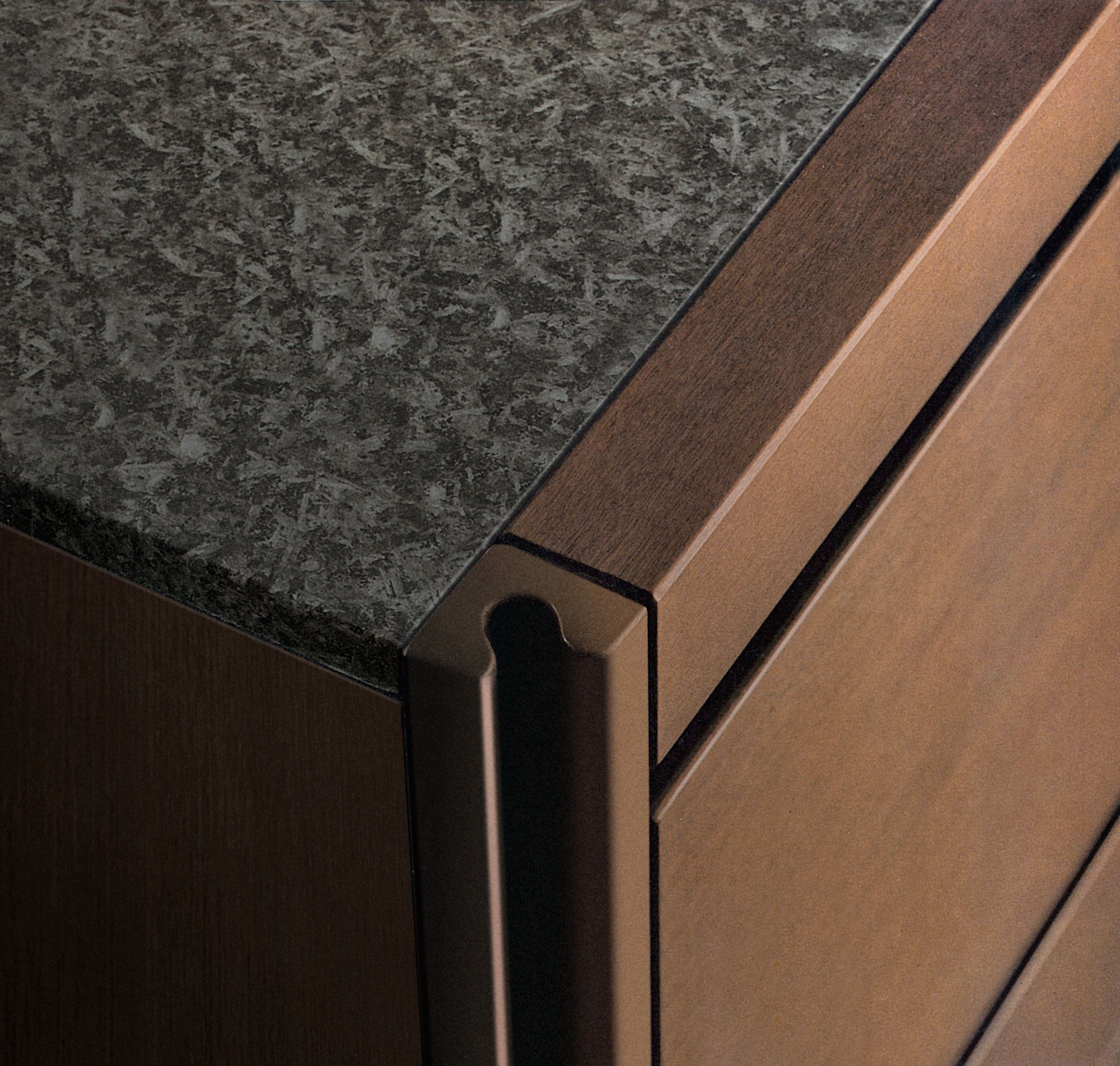 4D modular system
4D modular system
It is no coincidence that Mangiarotti gained instant fame in the field of design with his innovative 4D modular system, designed in 1966 for the entrepreneur Michele Casaluci: an abacus of simple interchangeable and adjoining elements characterised by vertical angular details that were both functional and aesthetically pleasing. It was a simple and ingenious invention that opened up the era of assembled furniture, no longer sculpted or shaped, while maintaining the freshness and elegance of craftsmanship.
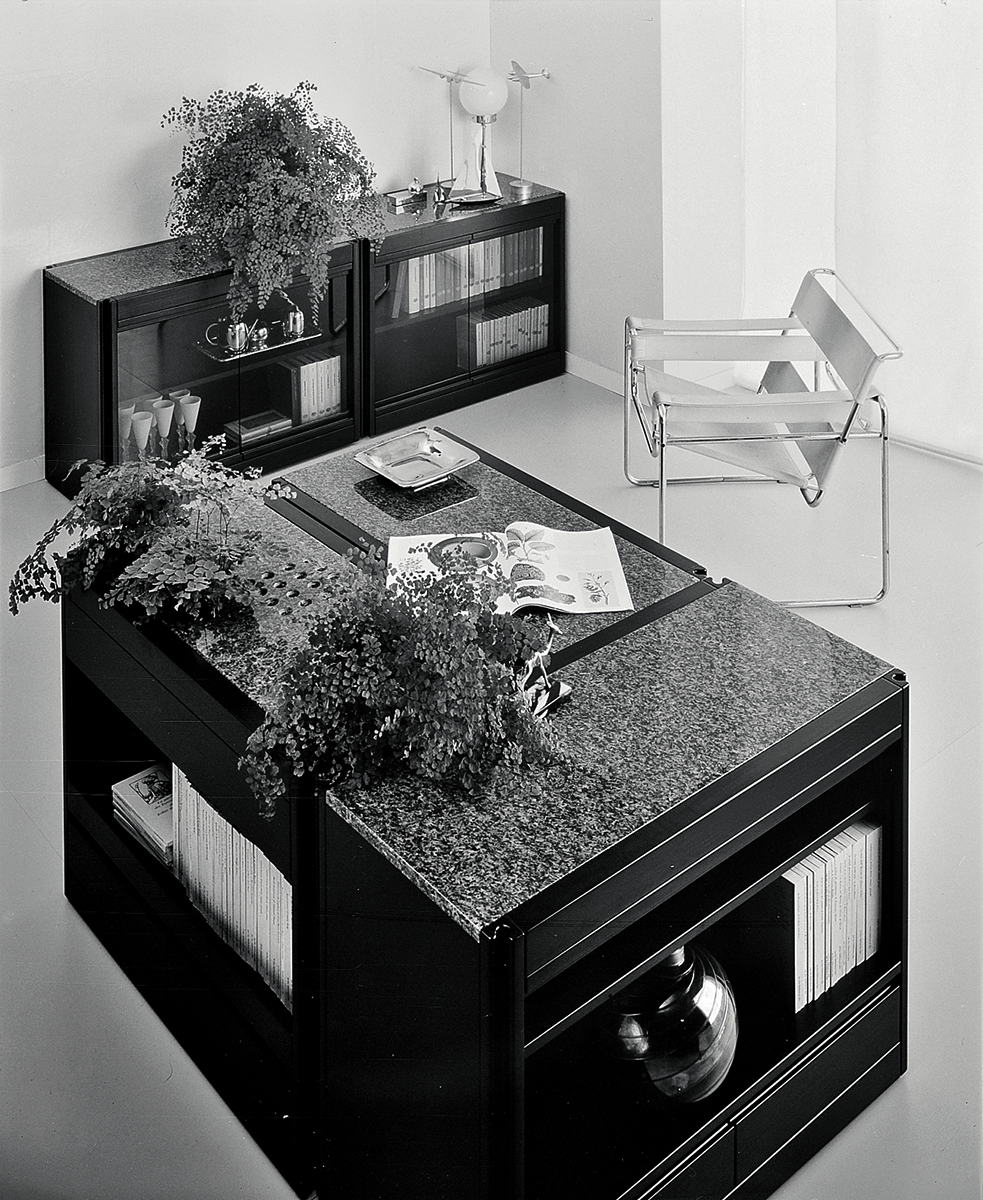 4D System
4D System
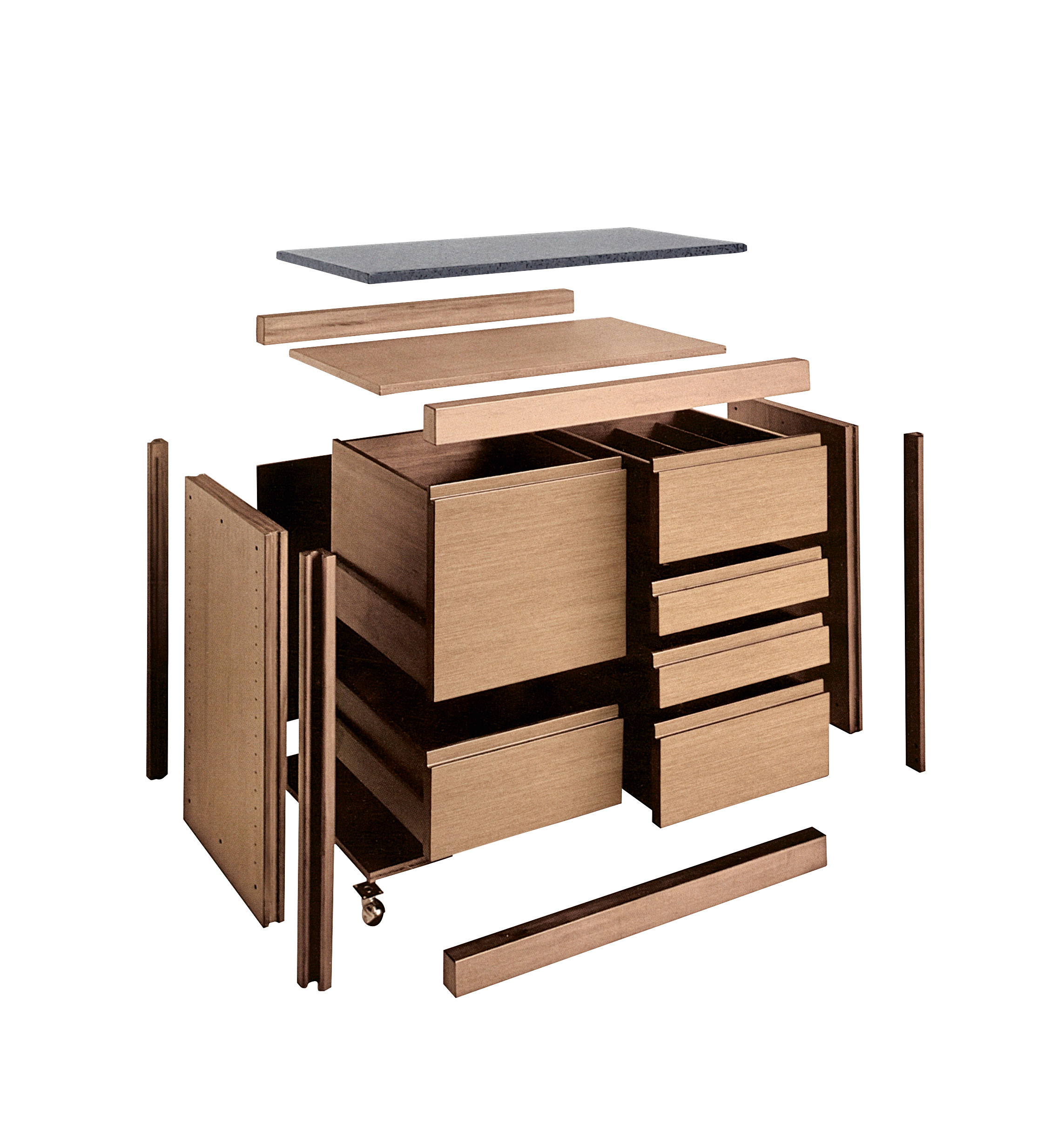 4D System
4D System
Angelo Molteni was impressed by Mangiarotti’s invention, and when the opportunity presented itself he acquired Casaluci's catalogue, imagining 4D as the milestone of a decisive and irreversible shift towards modernity. He was so convinced of this that he commissioned Mangiarotti – who, in the meantime, had provided another example of his impactful skills at the Elmag plant in Monza – to build the new UniFor plant in Turate, to which client and contractor almost attributed the value of a manifesto that went beyond the specific function.
To verify his method in Turate, Mangiarotti applied the same U70 patent adopted by Alberto Zevi – an esteemed friend of both Molteni and Casaluci – for Lema in Alzate Brianza. Nothing is left to chance in the history of the birth of the Italian furniture industry; everything is part of a virtuous circle of connections, affinity, emulation and skills, cemented by an ethical production practice that corresponds to an ethical attitude to quality and doing things well –quite different from business-oriented production.
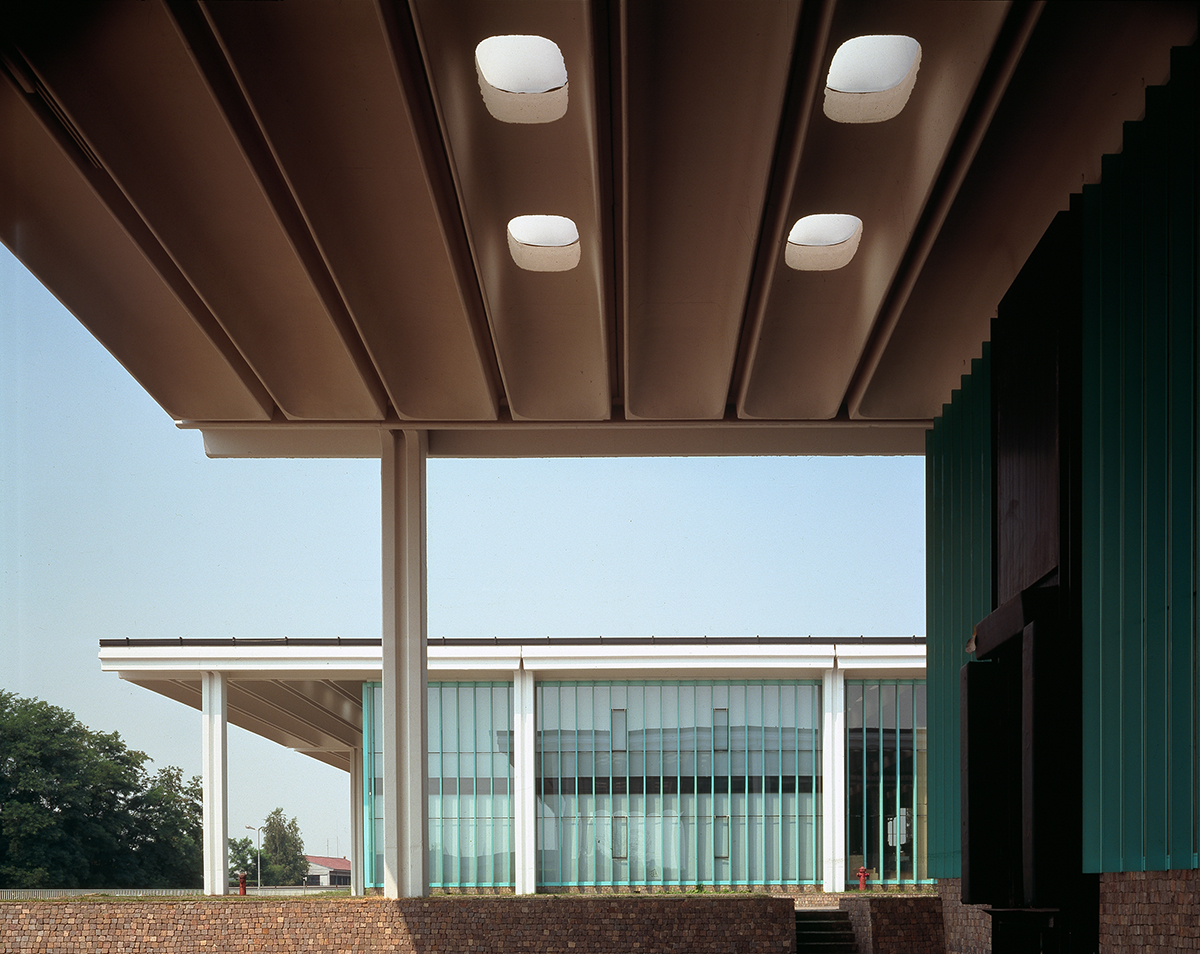 UniFor - Headquarters in Turate
UniFor - Headquarters in Turate
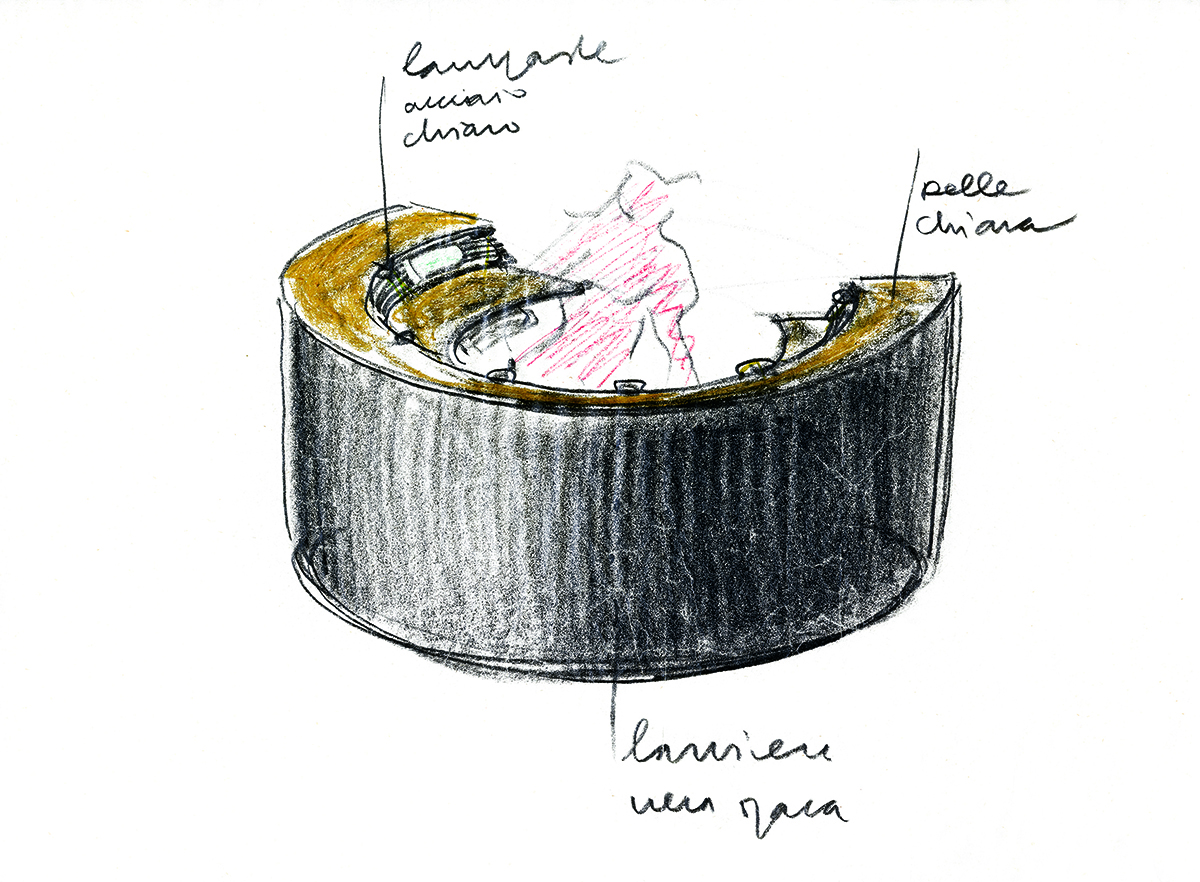 Sketch Reception
Sketch Reception
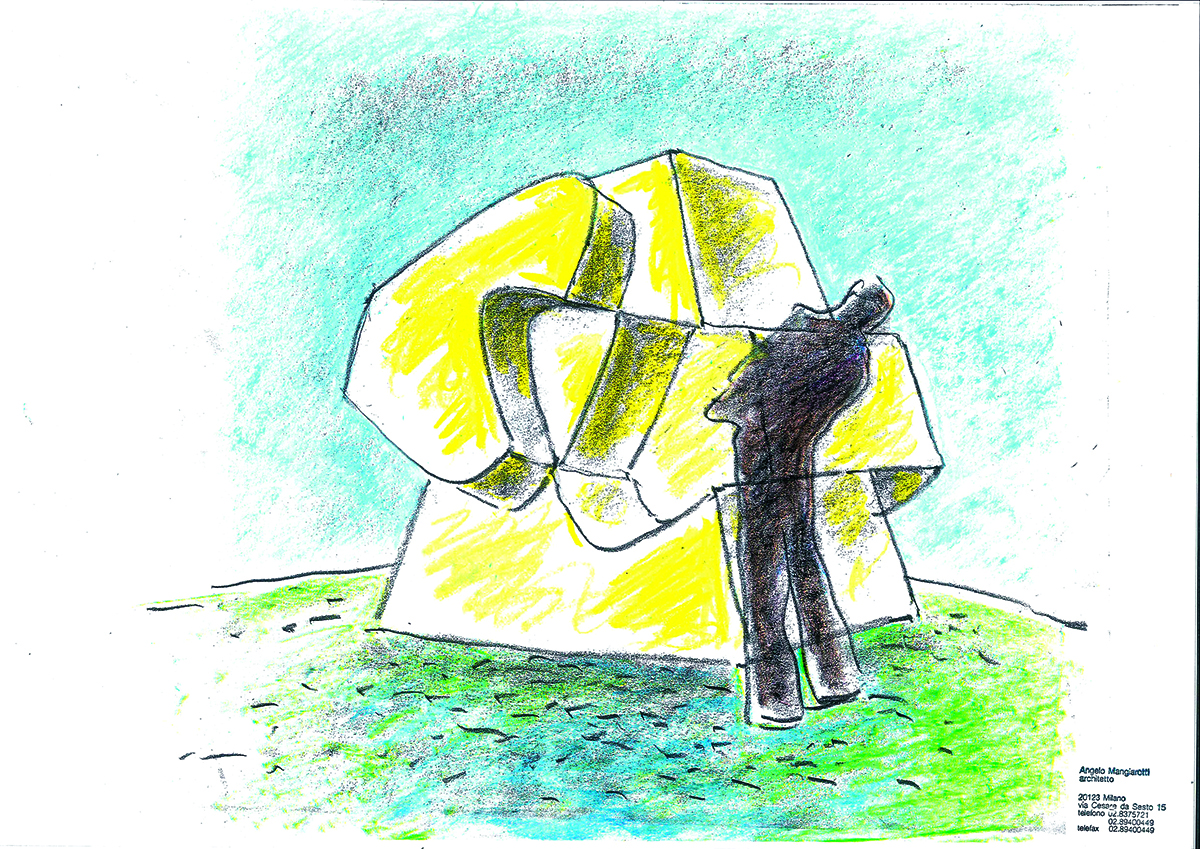 Sketch Divenire
Sketch Divenire
This and other aspects are the focus of the exhibition Officina Mangiarotti @Molteni Museum (3 March to 29 September 2023), which presents an in-depth study, curated by Fulvio Irace, addressing the relationship between Mangiarotti and Molteni Group: a strong and long-standing bond that spans architecture, design and sculpture. The exhibition is accompanied by the short film Un Angelo su Milano: Mangiarotti e la città [An Angel over Milan: Mangiarotti and the City], produced by Irace and Muse Factory of Projects and directed by Francesca Molteni, with the support of Molteni Group.
Exhibition box Mangiarotti Triennale
From 27 January to 23 April 2023, Triennale Milano hosts the Angelo Mangiarotti exhibition Quando le strutture prendono forma [When structures take shape], curated by Fulvio Irace, with Francesca Albani and Franz Graf (architecture section), Luca Pietro Nicoletti (sculpture section) and Marco Sammicheli (design section), with the support of Giulio Barazzetta.
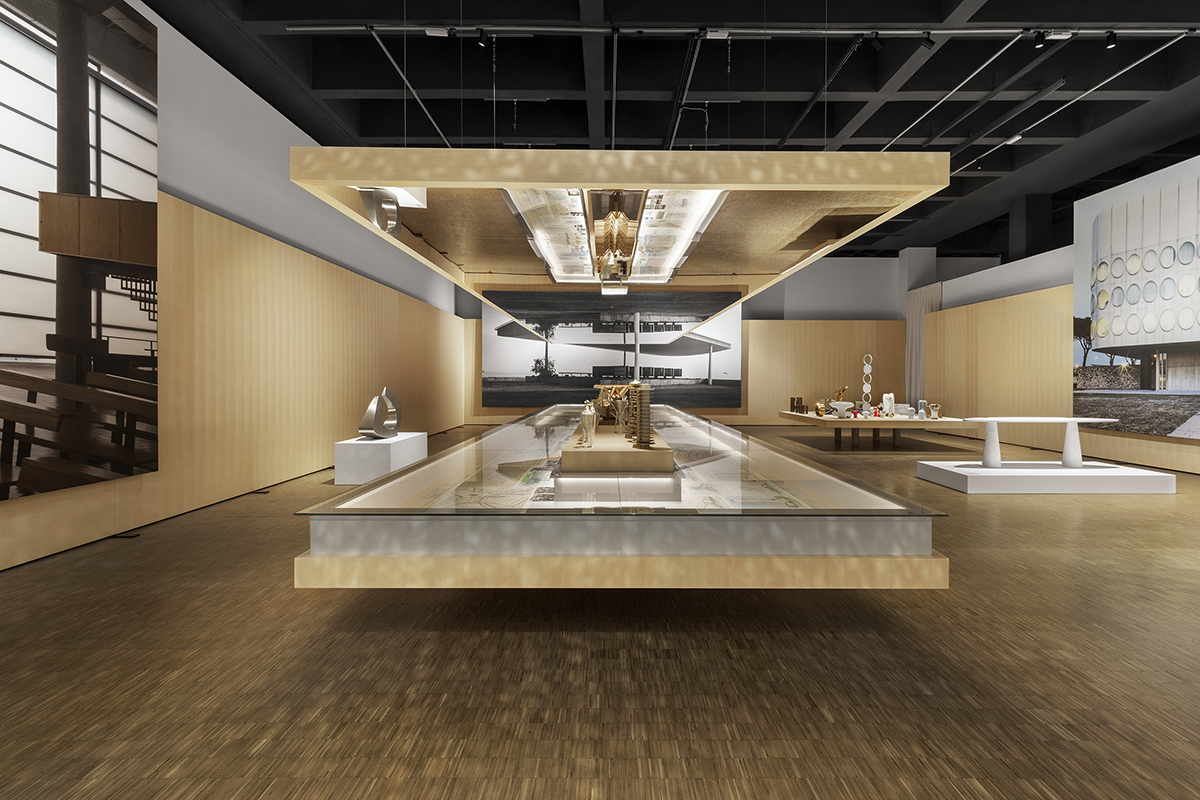
Triennale Milano, in collaboration with the Angelo Mangiarotti Foundation, has organised one of the most complete retrospectives ever assembled on the Milanese architect and designer, retracing more than 60 years of activity through a wide selection of works, projects, documents and materials, many of which have never been exhibited before.
As technical sponsor, UniFor has taken care of the set-up through perimeter panelling and display tables. Documents, drawings and prototypes have been sourced from the UniFor Archive, the Molteni&C Archive, the Triennale’s permanent collection and the Angelo Mangiarotti Foundation, among others. The exhibition is accompanied by a short film produced by Muse Factory of Projects, with the support of Molteni Group.
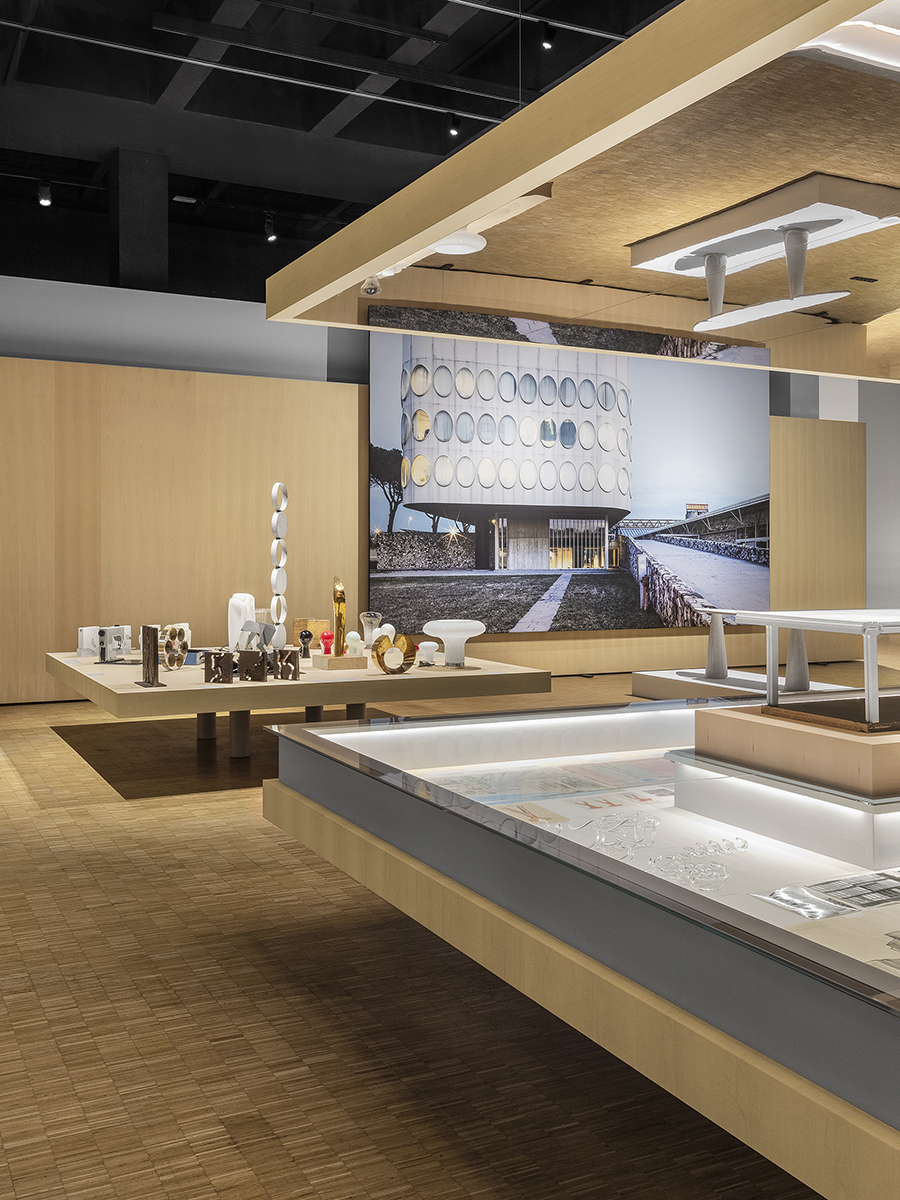 ph Alessandro Saletta - DSL Studio
ph Alessandro Saletta - DSL Studio
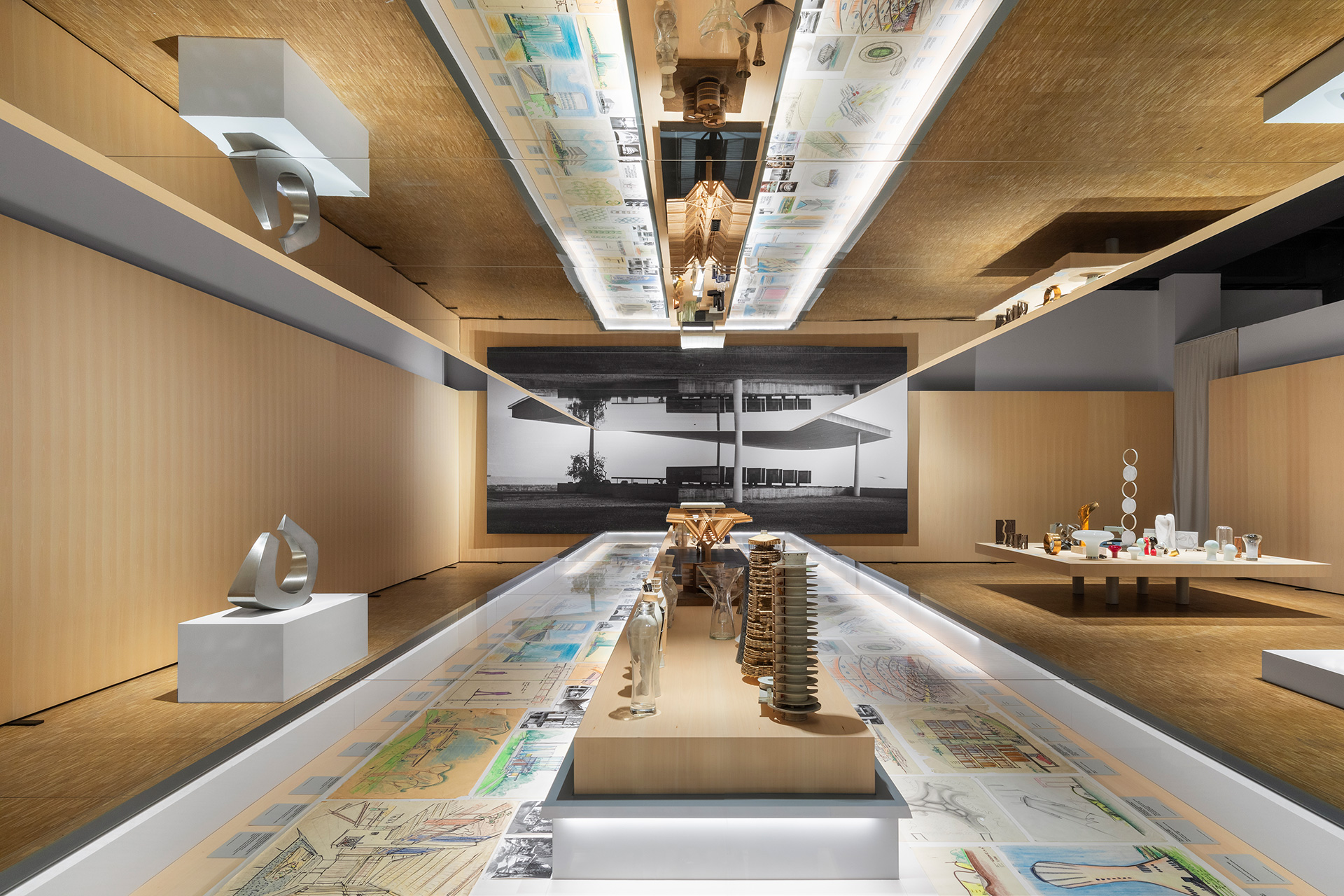 ph Alessandro Saletta - DSL Studio
ph Alessandro Saletta - DSL Studio
During Milan Design Week 2025 Molteni&C is hosting Letters to Milan, an installation by Studio Klass at Museo Poldi Pezzoli that explores the company's intimate connection to its home city.
The Power Station of Art (PSA) is the first – and currently only – state-owned contemporary art museum in mainland China.
For UniFor, design has always been about more than just a product: each object the company creates represents a dialogue between the user and maker, and embodies its vision for how a space should make you feel.
Thanks for your registration.